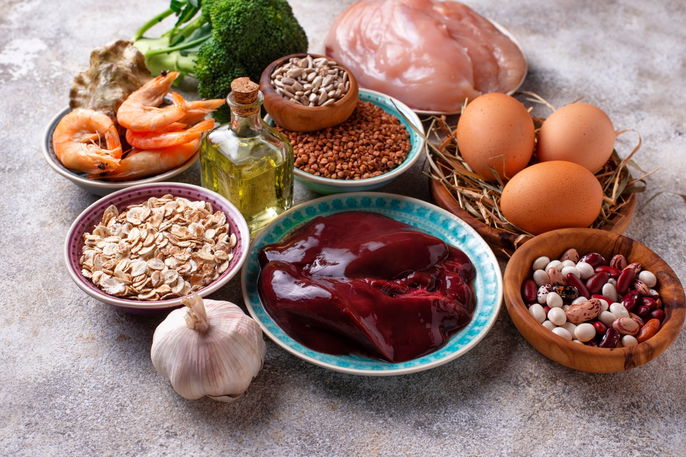Foods that are high in selenium include Brazil nuts, fish, seafood, beans, eggs, sunflower seeds, chicken and beef.
Selenium is a mineral that is important for the proper functioning of the thyroid gland. It also helps to strengthen the immune system and prevent the development of neurodegenerative and cardiovascular diseases.
The recommended daily amount of selenium for men, women and teens over 14 years old is 55 mcg of this mineral per day. Children between 9 and 13 years old should have 40 mcg of selenium per day.

List of foods
The following table outlines the amount of selenium present in 100 g of each food:
Animal-based food sources of selenium will result in overall better absorption of this mineral compared to plant-based sources. Therefore, it is important to maintain a balanced diet to ensure adequate intake of this mineral.
Health benefits
The main benefits of selenium include:
- Maintaining thyroid health
- Preventing cardiovascular diseases, such as heart attacks and atherosclerosis
- Preventing neurodegenerative diseases, such as Alzheimer's and multiple sclerosis
- Preventing premature aging
- Strengthening the immune system
- Improving male fertility
In addition, selenium can also help with weight loss and prevent the emergence of some types of cancer, such as prostate or breast cancer.
Recommended doses
The recommended daily amount of selenium depends on age and stage of life. Children aged 7 months to 3 years should consume 20 mcg of selenium per day.
The recommended amount of selenium for men and women over 14 years of age is 55 mcg per day.
Maintaining a varied and balanced diet can help to ensure that you are getting adequate amounts of selenium per day. You can eat one Brazil nut per day to hit your daily target. Learn more about the benefits of brazil nuts and how you can consume them.






























